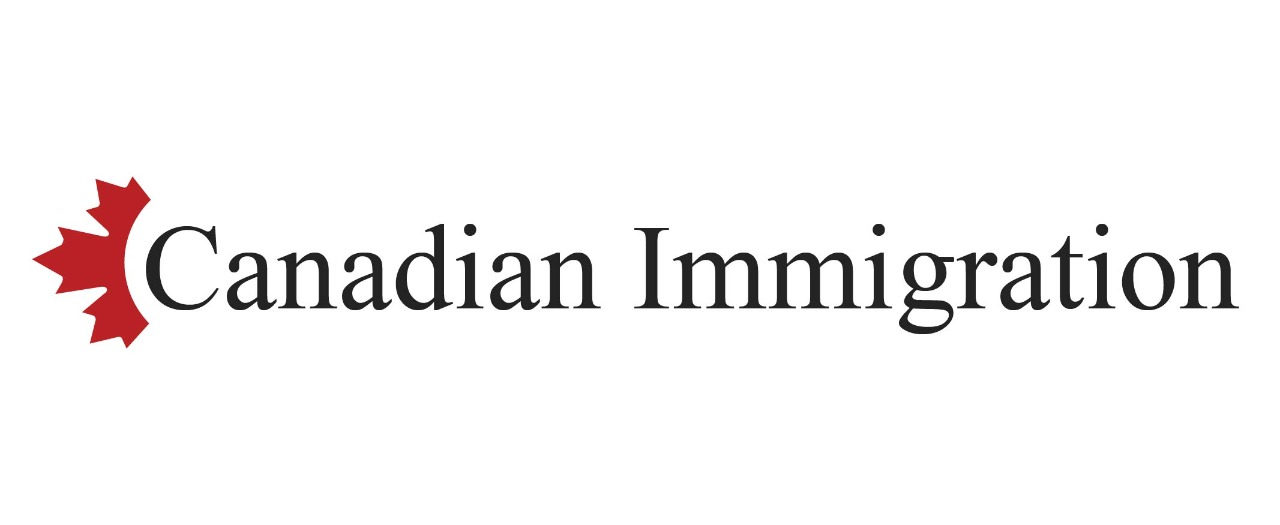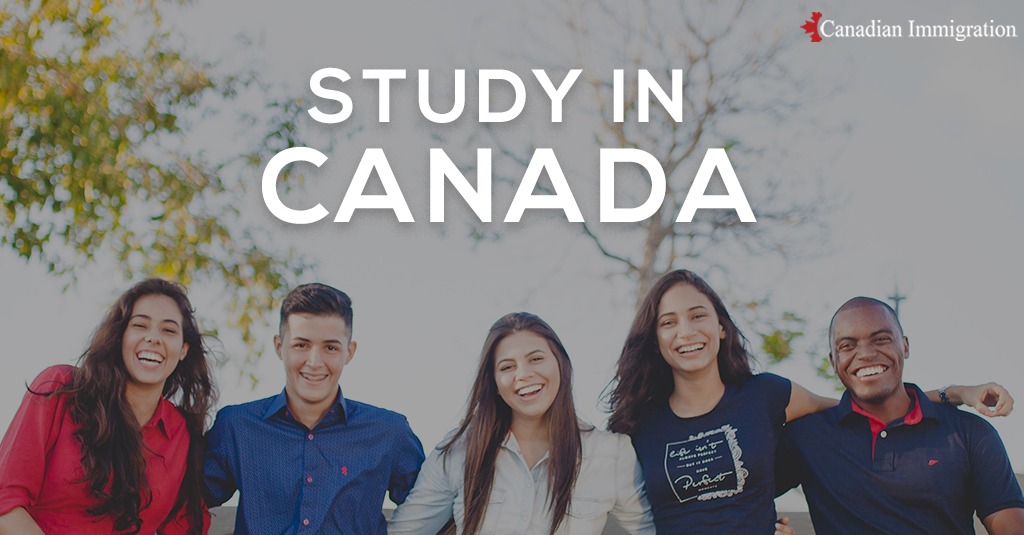The interest to study abroad seems to be consistently increasing these days. Even after the COVID-19 pandemic, the educational trends have evolved swiftly, giving a charm and attraction to excel in professional and academic careers. Therefore, many students from the world prefer to study abroad. Their utmost preference is to study in the world’s best study destinations and universities.
A similar destination that is also emerging as the most preferred educational hub is Canada. An increasing trend of to study in Canada is being observed all over the world. There are numerous factors why Canada is among the best places to study abroad, but its quality education and higher living standards are on the top.
In this article, we will provide a comprehensive guide to study in Canada. Furthermore, international students can also lead a path for permanent residence in Canada.
-
About Canada
Canada is the world’s second-largest country in terms of land area, with ten provinces, and is located on the North American continent, bordering the United States of America. Canada has a population of 37.59 million people. When most people think of Canada, they think of frigid weather and snow. Yet, it is a diversified country with stunning scenery. Canada is a developed country, with the 16th greatest per capita income and the 12th highest Human Development Index score. On the list of the world’s largest economies, Canada ranks first.
-
Canada: A popular study destination
Canada is regarded as among the world’s most popular study destinations. The United States of America is on top, followed by the United Kingdom. Because of the rigorous immigration restrictions of the United States and the United Kingdom, many students throughout the world prefer to study in Canada. Public and private schools, community colleges/technical institutions, career colleges, language schools, secondary schools, universities, and university colleges are all part of the Canadian educational system.
-
Canadian Education
The publicly funded education system in Canada is well acknowledged all over the world. In addition, the educational structures are managed by provinces individually. The federal government overlooks the facilities, standards, and quality of education so that it remains always on top.
Canada has both public and private schools throughout the country. In contrast, education till the post-secondary level is entirely free, as it has been subsidized by the Government of Canada.
The educational structure here prefers vocational education, which is the reason behind the high literacy rate and elevated employment.
-
Study in Canada: For International Students
Canada is always welcoming towards immigrants and international students. Furthermore, Canada has also planned to accommodate more than 400000 permanent residents into the country.
These permanent residents can also be former international students and skilled workers. The international student community in Canada is growing day by day eventually. This is also creating a solid multicultural tie among the students. Most of all, cultural diversity is the best experience to gain while studying in Canada.
The statistics from the previous years show that Canada invited around 400,000 international students from all over the world. The reason for selecting Canada as a study destination also constitutes a high acceptance rate.
-
Our Study in Canada Program for International Students
With the years of experience and developed expertise, CanadianImmigration.Pk has immensely developed a foreign study program.
The foreign study program enables aspiring students from Pakistan to study in Canada. We offer complete guidance about the whole process that makes the students are about the study in Canada.
We overlook the whole process for study in Canada till getting a Canadian study permit. We’ll be with you every step of the process, from obtaining your study permit to obtaining permanent residency. With our assistance, you may turn your Canadian education into permanent residence in Canada.
-
Study In Canada: How to apply?
If you are wondering that how to apply for a Canadian study permit or how to study in Canada. The answer lies within the article. The process is defined clearly, but it must be under expert supervision. Our consultancy firm provides the same assistance.
The basics to study in Canada are as follows:
-
Select your desired program
The degree program you wish to pursue for higher studies in Canada is quite essential in terms of study permit application. A strong personal statement and application case must be demonstrated to the authorities to obtain a Canadian study permit.
-
Apply to College/University
The university/college selection also assist the applicants in preparing their application. Before you apply for a study permit, you must receive a letter of acceptance from a Canadian designated learning institution (DLI).
-
Apply for Canadian Study Permit
You’ll be able to apply for your study permit once you’ve received your acceptance letter. We will assist you in preparing and submitting your Canadian immigration application.
-
Canadian Study Permit
The Canadian Study Permit is a document that is issued to international scholars who come to study in Canada. It enables and permits foreign nationals to study at designated learning institutions (DLIs) in Canada.
In order to study in Canada, international students need a Canadian study permit to get their education. The applicants are required to make sure that they possess all the valid documents before they are applying.
However, a study permit is not a visa, and it does not ensure entry into Canada. Furthermore, a visitor visa or an electronic travel authorization (eTA) is also essential to enter. Once a study permit is approved, the visitor visa or an eTA is also issued afterward.
-
Canadian Study Permit Eligibility Requirements
The following are requirements for a Canadian Study Permit. The applicants must be:
-
Enrolled at a designated learning institution (DLI).
- If you’re coming to study as an international student from outside of Canada, your DLI must be on the list of DLIs with an authorized COVID-19 preparedness plan.
-
Proof of Funds:
- The international students coming to Canada must be financially able to bear their educational expenses.
- They have tuition fees to pay.
- Enough funds to live in Canada to support oneself or any family members coming along.
- Funds to travel back to the homeland.
-
Documents:
The applicants must not have any criminal background, and they are in good health. Following documents are also needed.
- Police Certificate
- Medical Certificate/ Examination
- Intention to leave Canada once study permit expires.
-
Application Process for a Canadian Study Permit
How To apply for a Canadian Study Permit? It is not difficult at all. The process is defined below.
-
Eligibility:
Make sure you satisfy the conditions for a study permit in Canada. You’ll need the following items:
- A letter of approval from a DLI.
- Proof of financial assistance.
- Documents to support a claim (varies depending on your countries of citizenship and residence)
-
Application:
If you fulfill all the eligibility conditions, you may begin preparing your application for a study visa. Make sure you have all of the paperwork you’ll need for your nation. An immigration officer may reject your application if you do not demonstrate that you fit the conditions. It is a good idea to have your application reviewed by a competent immigration professional before submitting it.
-
Submit Your Application:
There are two ways to submit your application.
- Applying online on Immigration, Refugees and Citizenship Canada (IRCC) website
- Submitting a paper-based application.
-
Arrival:
Until you arrive at a Canadian Port of Entry, you will not acquire your Canadian study permit (POE). The Canadian government will send you a Port of Entry Introduction Letter if your permission is accepted. When you arrive in Canada, you must present this letter to an immigration official in order to get your study permit.
-
Canadian Study Permit Processing Time
The processing time for application for Canadian Study Permit application may vary according to different conditions. However, in most cases, the processing time depends on the applicant’s country.
An average duration for application processing is around 1-2 weeks; in some cases, it can even extend to more than 10 weeks.
-
Canadian Study Permit Conditions
A study permit in Canada is subject to several criteria and limitations. To reap the full benefits of your learning experience, you must adhere to these guidelines.
You must be a student at a recognized educational institution (DLI)
If you are studying in Quebec, you must be enrolled as a part-time or full-time student.
You may not take any permitted absence from your program of study for more than 150 days.
You must comprehend and adhere to the restrictions of your study permit. You will get the most out of your study abroad experience in Canada if you do so.
-
Expenses to study in Canada
When it comes to the cost of education in Canada, it is not free, but it is pretty inexpensive when compared to the cost of education in the United States, the United Kingdom, and Australia. Universities and colleges have reasonable tuition fees.
An undergraduate degree might cost anything from CAD 10,000 to CAD 20,000 per year in tuition.
-
Scholarship opportunities in Canada
Many universities offer to study in Canada for free through scholarship programs. They provide scholarships to top achievers. We can help you to obtain a scholarship to a Canadian university.
-
Study in Canada without IELTS?
Canada is an English/French-speaking country. Therefore most of the courses offered in Canadian universities are in English. Therefore, English proficiency is mandatory for students coming to Canada.
In addition, Canadian post-secondary schools mainly establish their own requirements for language proficiency for international students. The students applying from native English-speaking countries are not required to prove language proficiency. At the same time, applicants from non-native English countries can be asked to demonstrate their language proficiency.
Without IELTS, studying abroad has always been a contentious issue for Pakistani students. In comparison, some claims say that study in Canada without IELTS is possible. In terms of IELTS, our professional consultation and IELTS preparation guide will not let you down. We will assist you in achieving your target IELTS band.
-
Higher Educational Institutes in Canada
When it comes to higher educational institutes in Canada, Canada is no doubt home to the world’s top universities. Here are the names of the best and top-ranked universities in Canada.
-
University of Toronto
-
McGill University
-
University of British Columbia
-
University of Alberta
-
McMaster University
-
Top Programs to Study in Canada for International Students
The following fields of study are the most likely to lead to a career for an international student in Canada. They’re also the best subjects to study in Canada if you want to immigrate.
-
Bachelor’s in engineering
-
Bachelor’s in business studies
-
Bachelor’s in Accounting & Finance
-
Bachelor’s in media studies
-
Bachelor’s in computer sciences
-
Bachelor’s in biomedical sciences
-
Bachelor’s in health sciences
-
Bachelor’s in social sciences
International students who have graduated from a Canadian institute are eligible to work in Canada under the Post-Graduation Work Permit (PGWP). Graduates of Canada’s Designated Learning Institutes (DLIs) are permitted to work in the nation after finishing their courses in order to obtain experience.
In addition, Post-Graduation Work Permits (PGWPs) are open work permits that allow international graduate students from Canadian institutions to work lawfully in the country. Students can work full-time or part-time anywhere in Canada with this work permit.
Furthermore, by providing job experience, the Post-Graduation Work Permits assist permit holders in becoming Canadian Permanent Residents. Work experience might be beneficial when applying for immigration pathways that lead to permanent residency.
-
Work and Study
Apart from all other facilities, international students are also permitted to work while studying in Canada. During their studies, international students can do part-time jobs of up to 20 hours per week.
Furthermore, these students can also do full-time jobs when they are on a semester break or vacation.
Working while studying does not require a work permit for most students, whether their employment is on or off-campus. If you’re authorized to work off-campus, it’ll be stated on your study permit.
You may be eligible to work more than 20 hours throughout the semester if your program of study involves job experience. This will be stated in your acceptance letter. You will be awarded both a work permit and a study permit if the government approves this condition. You will be able to work exclusively on campus with this work permit.


